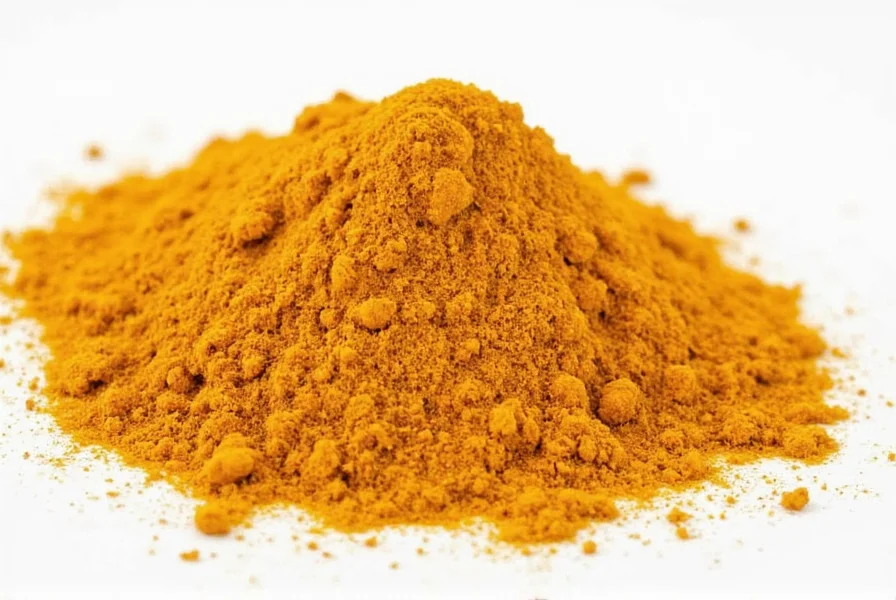Many people seek natural remedies for acid reflux, and turmeric often appears in online discussions as a potential solution. However, understanding the complex relationship between this popular spice and digestive health requires examining both potential benefits and significant risks.
Understanding Acid Reflux and GERD
Acid reflux occurs when stomach contents flow back into the esophagus, causing symptoms like heartburn, regurgitation, and chest discomfort. When these symptoms happen frequently (more than twice weekly), it may indicate gastroesophageal reflux disease (GERD), a chronic digestive condition affecting approximately 20% of Americans.
The lower esophageal sphincter (LES), a muscular ring between the esophagus and stomach, normally prevents this backward flow. In GERD, the LES weakens or relaxes inappropriately, allowing stomach acid to damage the esophageal lining.
Turmeric's Chemical Properties and Digestive Impact
Turmeric (Curcuma longa) contains curcuminoids, with curcumin being the primary active compound responsible for its yellow color and potential health benefits. Curcumin demonstrates anti-inflammatory and antioxidant properties in laboratory studies, which initially suggested potential digestive benefits.
However, turmeric's natural acidity presents a significant concern for acid reflux sufferers. With a pH between 4 and 5, turmeric falls within the acidic range that can trigger or worsen reflux symptoms. This acidity may stimulate additional stomach acid production and irritate an already sensitive esophageal lining.
| Property | Turmeric | Stomach Acid |
|---|---|---|
| pH Level | 4-5 | 1.5-3.5 |
| Natural Acidity | Moderate | High |
| Effect on LES | Potentially weakens | Directly irritates |
| Common Trigger | Yes for many GERD patients | N/A |
Scientific Evidence on Turmeric and Acid Reflux
Research examining turmeric's specific effects on acid reflux remains limited. A 2020 review published in Nutrients analyzed multiple studies on natural remedies for GERD and found insufficient evidence supporting turmeric as an effective treatment. The review noted that while curcumin shows promise for general inflammation reduction, its direct impact on GERD symptoms lacks robust clinical validation.
Conversely, several studies suggest potential risks. Research in the Journal of Gastroenterology and Hepatology indicates that turmeric may increase gastric acid secretion in some individuals, directly counteracting common acid reflux management strategies. Another study in Digestive Diseases and Sciences documented cases where turmeric supplements exacerbated GERD symptoms in sensitive individuals.
When Turmeric Might Worsen Acid Reflux
Certain factors increase the likelihood that turmeric will aggravate acid reflux symptoms:
- Pre-existing GERD diagnosis - Individuals with confirmed GERD often experience symptom exacerbation
- High-dose supplementation - Concentrated turmeric extracts pose greater risk than culinary use
- Empty stomach consumption - Taking turmeric without food increases irritation potential
- Combined with other triggers - Using turmeric alongside coffee, alcohol, or fatty foods compounds negative effects
Medical professionals frequently report patients experiencing increased heartburn after starting turmeric supplements, particularly when taken in capsule form on an empty stomach.
Safer Alternatives for Acid Reflux Management
While turmeric shows limited promise for acid reflux relief, several evidence-based alternatives demonstrate more consistent results:
- Ginger - Studies show ginger may strengthen the LES and reduce reflux episodes
- Slippery elm - Forms a protective coating over irritated tissues
- Aloe vera juice - Soothes inflammation in the esophagus
- Lifestyle modifications - Weight management, meal timing, and sleeping position adjustments
The American College of Gastroenterology recommends dietary changes, weight management, and elevation of the head during sleep as first-line approaches for mild GERD before considering supplements or medications.
Using Turmeric Safely with Acid Reflux
If you wish to try turmeric despite potential risks, consider these safety measures:
- Start with small culinary amounts (1/4-1/2 teaspoon) in cooked dishes rather than supplements
- Always consume turmeric with food, never on an empty stomach
- Avoid combining with other common reflux triggers like citrus or tomatoes
- Monitor symptoms carefully for 48 hours after consumption
- Discontinue immediately if symptoms worsen
Consult your healthcare provider before adding turmeric to your regimen, especially if you take medications for acid reflux, blood thinners, or diabetes management. Turmeric may interact with these medications and affect their efficacy.
When to Seek Medical Advice
Regular acid reflux symptoms warrant professional medical evaluation. Contact a healthcare provider if you experience:
- Heartburn more than twice weekly
- Difficulty swallowing
- Unintended weight loss
- Nighttime symptoms disrupting sleep
- Symptoms persisting despite lifestyle changes
Chronic acid reflux can lead to complications like esophagitis, Barrett's esophagus, or even esophageal cancer if left untreated. Professional diagnosis ensures appropriate treatment and rules out more serious conditions.
Evidence-Based Acid Reflux Management Approach
Effective acid reflux management typically involves a multi-faceted approach:
- Dietary modifications - Identify and eliminate personal trigger foods
- Lifestyle adjustments - Weight management, smoking cessation, meal timing
- Positional therapy - Elevating head during sleep
- Medication when necessary - Antacids, H2 blockers, or proton pump inhibitors
- Regular monitoring - Tracking symptoms and treatment effectiveness
Natural remedies like turmeric should complement, not replace, evidence-based approaches. Always discuss supplement use with your healthcare provider to ensure safety and appropriateness for your specific condition.











 浙公网安备
33010002000092号
浙公网安备
33010002000092号 浙B2-20120091-4
浙B2-20120091-4